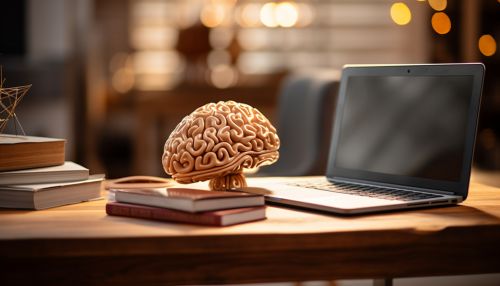Cognitive Ability
Introduction
Cognitive ability refers to the mental capabilities that allow us to learn, process information, reason, remember, and solve problems. These abilities are critical for understanding, learning, problem-solving, and adapting to the environment. Cognitive abilities encompass various domains, including memory, attention, perception, language, and executive functions.


Memory
Memory is a crucial aspect of cognitive ability. It involves the process of encoding, storing, and retrieving information. Memory can be divided into short-term memory and long-term memory. Short-term memory, also known as working memory, holds a small amount of information for a brief period, while long-term memory stores vast amounts of information for extended periods.
Attention
Attention is another essential cognitive ability. It refers to the capacity to focus on specific stimuli or tasks while ignoring others. Attention can be selective, divided, or sustained. Selective attention involves focusing on one stimulus while ignoring others. Divided attention refers to the ability to focus on multiple tasks simultaneously. Sustained attention is the ability to maintain focus over prolonged periods.
Perception
Perception is the process of interpreting sensory information to understand the environment. It involves recognizing and interpreting sensory stimuli through the five senses: sight, sound, smell, taste, and touch. Perception is crucial in shaping our understanding of the world and guiding our actions and decisions.
Language
Language is a complex cognitive ability that involves understanding and producing speech. It includes several components, such as phonetics, semantics, syntax, and pragmatics. Phonetics is the study of speech sounds, semantics is the study of meaning, syntax is the study of sentence structure, and pragmatics is the study of language use in context.
Executive Functions
Executive functions are a set of cognitive processes that manage, control, and regulate other cognitive abilities. They include skills such as problem-solving, planning, decision making, working memory, cognitive flexibility, and inhibitory control. Executive functions are critical for managing daily tasks and achieving goals.
Cognitive Ability and Intelligence
Cognitive ability is closely related to intelligence, a construct that includes reasoning, problem-solving, planning, abstract thinking, complex idea comprehension, and learning from experience. Intelligence is often measured using IQ tests, which assess various cognitive abilities. However, cognitive ability and intelligence are not synonymous, as cognitive abilities encompass a broader range of mental capabilities.
Factors Influencing Cognitive Ability
Various factors can influence cognitive ability, including genetics, environment, age, and health. Genetics play a significant role in determining cognitive abilities, with research suggesting a strong hereditary component. The environment, including educational and socio-economic factors, can also significantly impact cognitive development. Age is another factor, with cognitive abilities generally improving during childhood and adolescence, peaking in early adulthood, and gradually declining in older age. Health factors, including nutrition, physical activity, and mental health, can also influence cognitive abilities.
Cognitive Ability Assessment
Cognitive abilities can be assessed using various tests and measures. These include IQ tests, memory tests, attention tests, language tests, and executive function tests. These assessments can help identify cognitive strengths and weaknesses, guide educational and career decisions, and diagnose cognitive disorders.
Cognitive Disorders
Cognitive disorders, also known as neurocognitive disorders, are conditions characterized by significant impairment in cognitive function. These include conditions such as Alzheimer's disease, dementia, ADHD, and learning disabilities. These disorders can significantly impact a person's ability to function in daily life and may require specialized treatment and support.
Conclusion
Cognitive abilities are critical mental capabilities that allow us to learn, process information, reason, remember, and solve problems. Understanding these abilities and the factors that influence them can provide valuable insights into human behavior and cognition, guide educational and career decisions, and inform the diagnosis and treatment of cognitive disorders.
